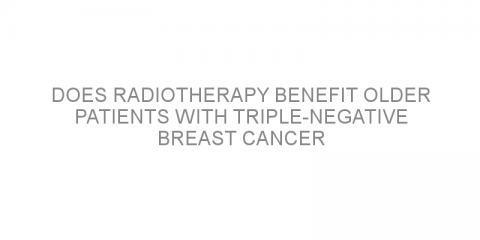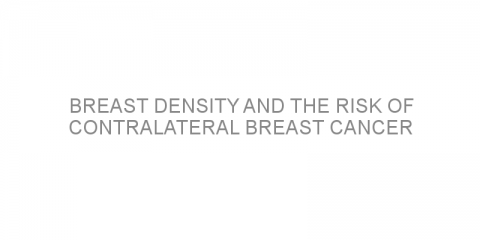In a nutshell The study assessed whether pembrolizumab (Keytruda) could be used in addition to neoadjuvant chemotherapy (NAC; chemotherapy before surgery) to improve the outcomes of patients with early triple-negative breast cancer (TNBC). The study found that more patients treated with pembrolizumab had a complete response. Some...
Read MoreConfined or spread disease-Extends into the skin or chest wall Posts on Medivizor
Adding ixabepilone to capecitabine treatment for triple negative breast cancer.
In a nutshell This study wanted to find out if ixabepilone (Ixempra) and capecitabine (Xeloda) work for treating triple-negative breast cancer in patients with hard to treat disease compared to using capecitabine alone. The study found that adding ixabepilone to treatment resulted in longer survival without the cancer progressing. Some background...
Read MoreMetronomic chemotherapy for HR+ advanced breast cancer
In a nutshell This study wanted to see how well using metronomic chemotherapy with capecitabine (Xeloda) combined with aromatase inhibitors works for patients with hormone receptor positive advanced breast cancer. The study found that this treatment works well and is safe, and therefore should be considered as a potential treatment option. Some...
Read MoreLooking for patients with triple negative inoperable breast cancer to test a new treatment option atezolizumab
In a nutshell This trial is examining the effectiveness of atezolizumab (Tecentriq) when used with chemotherapy in patients with inoperable, recurrent triple-negative breast cancer. The main outcome to be measured will be the overall survival (time from treatment until death from any cause) of participants. The...
Read MoreLooking for patients with HER2 negative HR positive advanced breast cancer to test tesetaxel
In a nutshell This trial is examining the effectiveness of tesetaxel plus a reduced dose of capecitabine for hormone receptor (HR) positive/HER2 negative advanced breast cancer. The main outcome to be measured will be progression free survival (time from treatment until disease progression). The details Breast cancer is classified into...
Read MoreEffects of breast reconstruction compared to mastectomy only on survival and risk of recurrence of breast cancer
Layman Title Effects of breast reconstruction compared to mastectomy only on survival and risk of recurrence of breast cancer In a nutshell This study aimed to find out if breast reconstruction using deep inferior epigastric perforator (DIEP) flap reconstruction resulted in higher levels of recurrence compared to mastectomy alone. The authors found that...
Read MoreAre two HER-2 medications combined with hormone therapy effective?
In a nutshell This trial aimed to evaluate the use of a second treatment targeting HER-2 in a group of patients that had HER-2, HR positive metastatic breast cancer. This study found that patients treated with dual HER-2 medications with hormone therapy had a superior progression free survival as compared to those using one medication...
Read MoreCombination chemotherapy and radiation therapy in locally advanced breast cancer
In a nutshell This study aimed to find out if radiation added to standard chemotherapy could increase the response to treatment for locally advanced breast cancer. This study found that neoadjuvant radiation added to chemotherapy improved response but not overall survival. Some background Chemotherapy is a treatment option for...
Read MoreFulvestrant: an option for estrogen-receptor positive breast cancer that has spread
In a nutshell This study aimed to compare fulvestrant (Faslodex) to other standard endocrine agents in patients with advanced hormone sensitive breast cancer. This study concluded that fulvestrant was as effective as the available standard endocrine agents. Some background Advanced hormone sensitive breast cancer (BC) is cancer that has...
Read MoreDoes radiotherapy benefit older patients with triple-negative breast cancer
In a nutshell This study investigated the effects of radiotherapy (RT) in older patients with triple-negative breast cancer (TNBC). RT was found to be associated with better survival outcomes for both younger and older patients. Some background TNBC is a form of breast cancer which tests negative for estrogen/ progesterone receptors and human...
Read MoreThe accuracy and relevancy of sentinel lymph node biopsy before neoadjuvant systemic therapy in breast cancer
In a nutshell This study investigated the accuracy and reliability of sentinel lymph node biopsy (SNLB) before neoadjuvant systemic therapy (NAST) has begun in breast cancer patients. The study concluded that SLNB before NAST is highly reliable. The authors suggested that patients with a negative SLNB may be able to avoid lymph node removal and...
Read MoreBreast density and the risk of contralateral breast cancer
In a nutshell This study investigated whether a high proportion of dense breast tissue is associated with an increased risk of developing contralateral breast cancer (CBC, cancer in the other breast). This study determined that those with dense breasts at the time of original diagnosis were significantly more likely to develop CBC than those...
Read More












